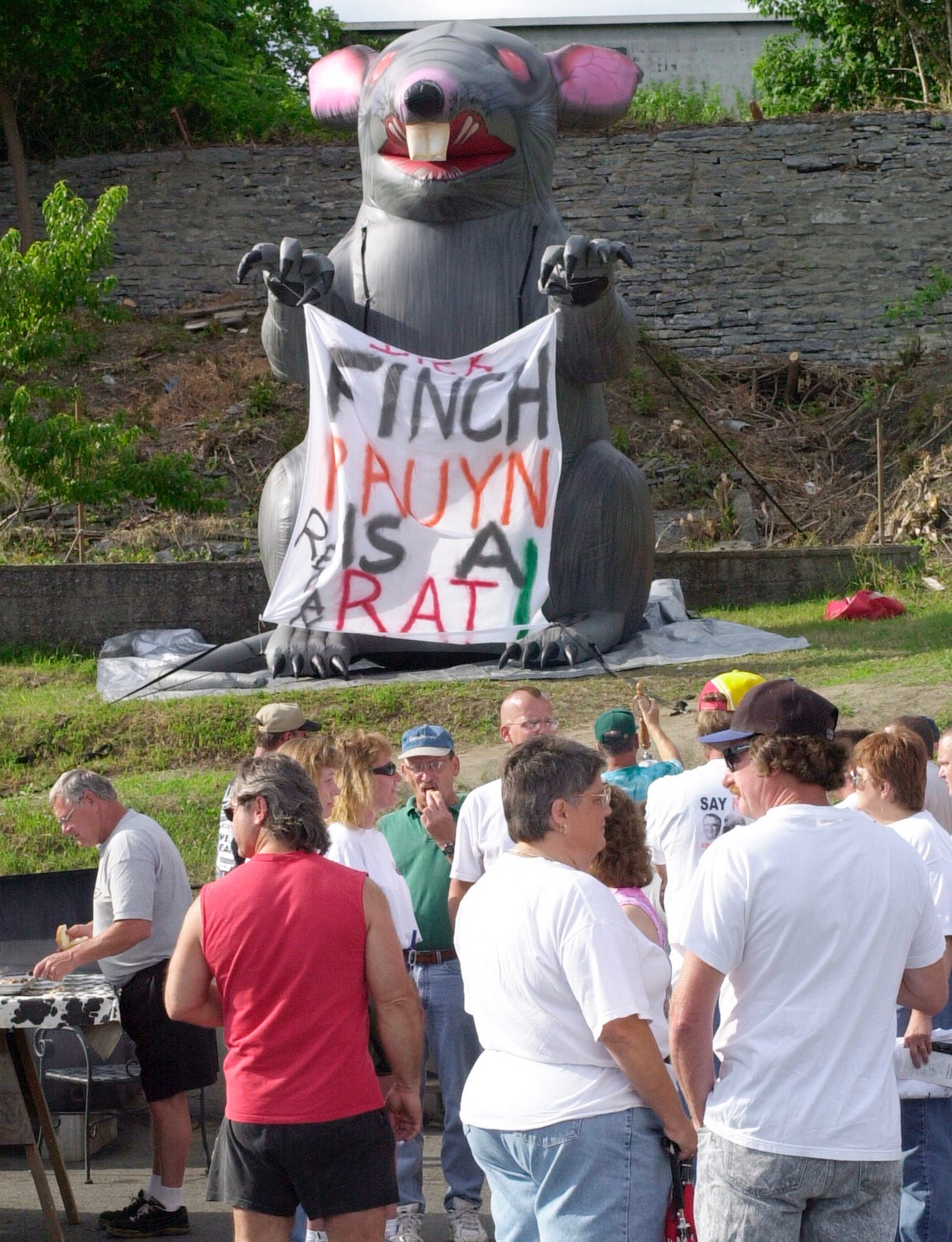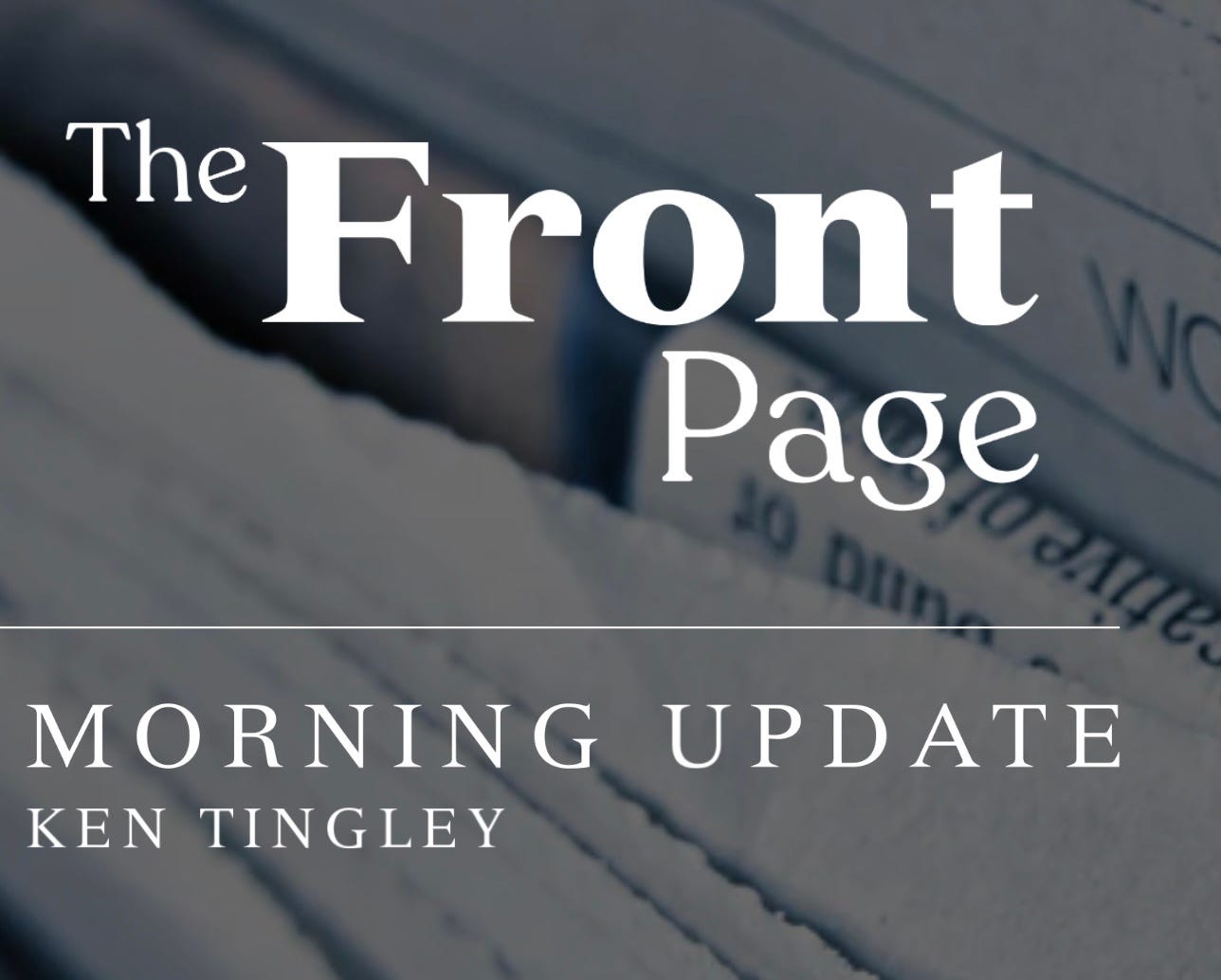Remember 2001 Finch, Pruyn strike in new book
Bob Henke speaks up about why his column did not appear this week
By Ken Tingley
When the Finch, Pruyn workers went on strike at the paper mill in 2001, I had been editor for two and a half years.
The mill was the largest employer in the region at the time and having 600 of them on strike affected businesses all across the region.
When a rally was scheduled that July, I tagged along with Maury Thompson who was our business writer at the time.
I remember the workers marching up the hill past the Civic Center on Glen Street and through downtown. They hurled expletives at businesses they felt did not support them. They hurled expletives at Thompson. Most had no idea who the guy next to Thompson was.
The strike is a part of Glens Falls’ recent history, but I was surprised to see there is no mention of it on the Finch website. It has been erased from their history, but not my latest book.
My column on the strike leads “Hometown, USA” section of “The Last American Editor, Vol. 2.”
Thompson told me years later that targeting him with insults was “just part of the theater.” He said he did not take offense. A couple years later after Maury’s wife died, some of those same striking workers visited the newsroom and presented him with a Bible in memory of his wife Nancy.
The workers lost that strike and it changed the face of the paper mill and those who worked there.
There are 14 more columns in the Hometown portion of the book and 90 total columns. There are columns on Maury Thompson’s long career at the newspaper, the epic Sweeney-Gillibrand congressional race in 2006, Bud Taylor’s loss in the Glens Falls mayor’s race in 2008, the search for the grave of an old Lake Luzerne Civil War soldier who was pardoned by Abraham Lincoln and Queensbury’s great email scandal in 2017 where Tony Metivier stood up and did the right thing.
There is something for everyone. I hope you preorder the new book at Something or Other Publishing website. Here is a sampling of the column from 2001.

Seeing the strike up close
July 13, 2001
They were gathered in a parking lot of Oakland Avenue, hundreds of these striking workers from Finch, Pruyn & Co.
There were entire families of moms, dads, teenagers and babies, three and four different generations of workers all laughing and eating and enjoying themselves - at least on the surface.
The smell of charcoal and barbecued food wafted across the blacktop and gave you the sense of a Fourth of July picnic, not a labor dispute.
A hundred yards away was the Finch, Pruyn paper mill. Security guards stood their posts, often enduring insults from one-time colleagues.
Other workers would step out of the mill’s doors, probably on a break from their duties, the two groups eyeballing each other across the Feeder Canal like some sort of Berlin Wall right here in Hometown, USA.
Reading about the Finch, Pruyn strike in the newspaper is a whole lot different from seeing it up close, from seeing it in the faces of men and women fighting for a cause they believe in or in the serious faces of the security guards who probably wish they weren’t on a first-name basis with striking workers.
But for every worker who laughed and smiled, there were two with worry in their eyes, the kind of worry that comes with unpaid bill and an uncertain future.
When the barbecue had all been eaten, the speeches began.
There was talk of solidarity, support and scabs. This was a pep rally and the game being played had the livelihoods of 600 workers at stake.
The union spokesman talked about the local businesses that had supported them with money and food. And they also talked about those that had not supported them and how they would run them out of business.
Many roared their approval. Suddenly, there was anger in the air.
The group, 1,500 strong, began a march down Oakland Avenue, up Glen Street past the Civic Center and through a mostly deserted downtown. They stopped and heckled outside one business, screamed “scabs” and told confused-looking patrons not to do business there. They did the same at an empty City Hall because Mayor Regan had cut back on the city’s police presence to have money for a city already strapped for cash.
This was a crash course in a labor dispute. In the end, no one is neutral and the damage is collateral.
You can read the rest in “The Last American Editor, Vol. 2” as well as 89 other columns. Here are few others from the Hometown, USA section:.
Hometown, USA
Seeing the strike up close, July 13, 2001
You don’t replace reporters like Maury Thompson, September 3, 2017
Sweeney may have competition, February 19, 2006
Gillibrand off to frantic start, April 1, 2007
Relay puts best foot forward, June 1, 2008
Another world right here in Glens Falls, August 17, 2008
Another race, another long night for Bud Taylor, November 5, 2008
Victory wins with its mayor, July 19, 2009
Murphy shares his Oval Office story, March 24, 2010
Murphy meets his critics, April 4, 2010
Party bullies candidate into playing ball, April 22, 2012
Rescued by Lincoln, Luzerne man saved from gallows, August 23, 2017
Mystery of the local Civil War soldier solved, August 27, 2017
Strough refuses to back down, May 16, 2018
This is what a true public servant looks like, December 7, 2019
Henke speaks up
This has been a week of change for our local newspaper, but especially for long-time outdoors columnist Bob Henke and apparently other free lancers at the newspaper.
Henke posted this on Facebook Tuesday, the first day that the newspaper was to be delivered by the Post Office:
“A huge number of people have been contacting me (over 70 so far today) because they could not find my column in the Post Star this week. I wondered a bit about this myself until I got an email today announcing I had been fired.
“That might be a little harsh. What the email said was that the corporate office had withdrawn all budget for freelance work. They will review this policy in September to see if it was a profitable move. I will not hold my breath.
“So, absent some monumental groundswell of protest, which I do not anticipate, do not look for my stuff in the Post Star. It has been a good run. I started in 1989, doing not only the nature column but a social commentary column, and a bunch of features—a total of well over 2000 pieces in the Post Star. I rejected some better offers from bigger papers, mostly because I really like the concept of a hometown paper interacting with friends and neighbors. The columns have won prizes on several levels ranging from writers’ associations to the Militant Breast-Feeding Cult. (I was their poet laureate in 1998).
“I will really miss the contact with people sending me sightings and asking questions, some of which really make me expand my own knowledge. I may shop around a bit and see if there is somewhere else local that might have a freelance budget and can provide an avenue to the many friends and colleagues I have developed in 34 years of working with the Post Star.
I thank and truly value you all.”
When I heard about the cuts to The Post-Star’s free lance budget, I reached out to Henke to let him know he is welcome any time here on The Front Page.
Post Office delivers
As for the first day of the three-week schedule for the newspaper, it went well for me.
The paper arrived around noon with that day’s mail. I’ve gotten in the habit over the years of picking up the mail from the day before with the morning newspaper and that is what I did on Wednesday.
So my plan going forward is to pick up the mail and newspaper on Wednesday, Friday and Sunday mornings and continue my routine of reading the newspaper in the morning, at least three days a week.
Hopefully, the news won’t be too old.





I will miss Bob Henke and Forrest Hartley’s columns.
I think that receiving the paper by mail would only contain local news that I might want. National , international and state news would be old news . I can get that from TV and NPR news programs. I feel cutting local columns will be a mistake , in my opinion.
I too will miss the local news. The National is pretty well covered by tv.